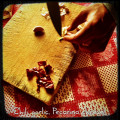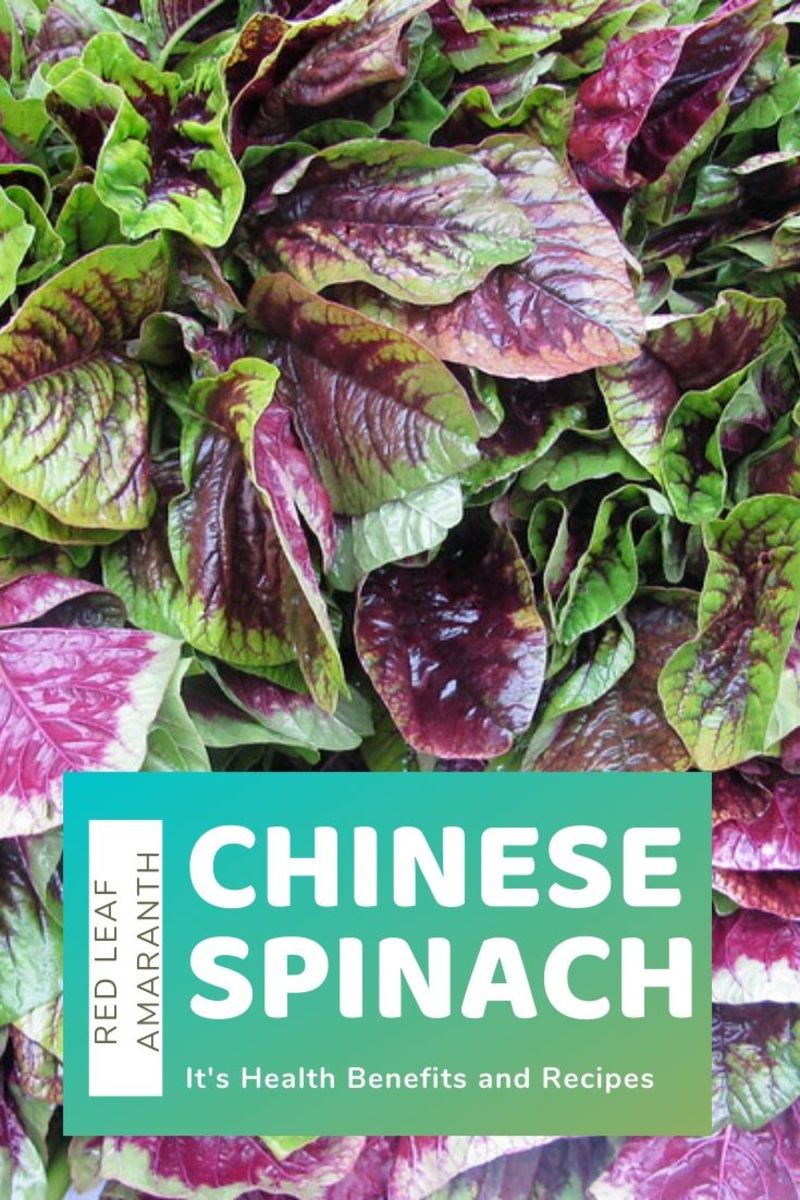Tips on Cooking for an Elderly Person
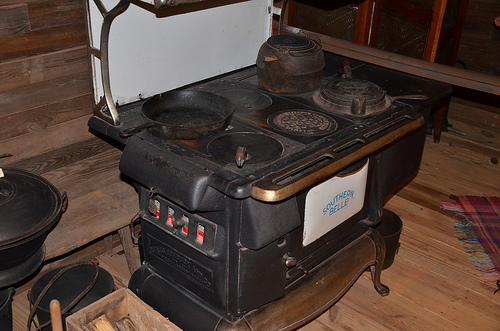
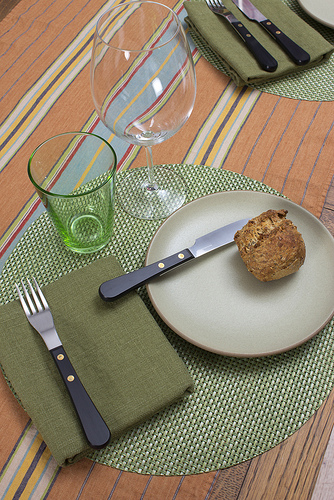
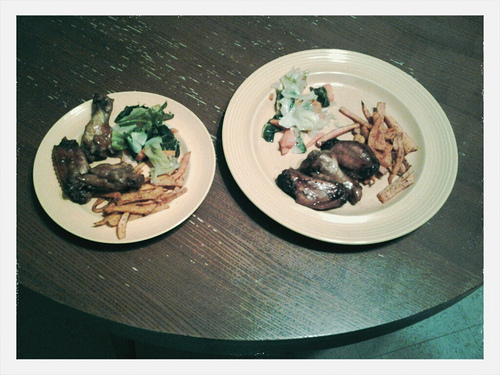
Basic Tips on Cooking for Any Age
While cooking for an elderly person can have some of its own issues, many of the tips on cooking for an older adult are the same as cooking for people of any age.
- Learn what the person's likes and dislikes are when it comes to food, including form and amount
- Cleanliness during preparation and cooking is important to prevent food-borne illnesses or contamination of food
- Presentation is important; make the meal setting and the food attractive to the eye
- Include foods from each of the major food groups at each meal
- Variety is the spice of life -- and a healthy appetite
- Avoid prepackaged foods as often as possible. Cook from scratch, using fresh ingredients and keeping food as close to its basic state as practical
- Learn whether the person has an food allergies. If so, read labels carefully to avoid including any of the allergy-causing food or substance.
- Make mealtime a pleasant experience
- Establish a routine/schedule for mealtimes
Celebrity Chefs Cook for Older Adults
Senior Health Concerns -- Special Considerations
When you're cooking for the elderly, there are some issues more prevalent in that age group than in younger people. You'll need to take these issues into consideration when planning and preparing meals for seniors:
- Older adults are more likely to have a combination of chronic conditions than their younger counterparts. Senses such as smell and taste may have diminished or changed over the years.
- Chewing some textures of food may have become difficult. Sometimes swallowing is impaired.
- Digestive problems ranging from irritable bowel syndrome to constipation to intolerance for certain foods may exist.
- As people age, the body becomes less efficient in maintaining fluid levels. Older adults also lose some of their sense of thirst.
- Special diets for diabetes, heart disease, kidney problems or other conditions may have been prescribed by the health care provider.
- Caloric needs decrease with age due to metabolism that becomes a little slower with each decade of life after age 40, but nutritional needs remain the same or increase.
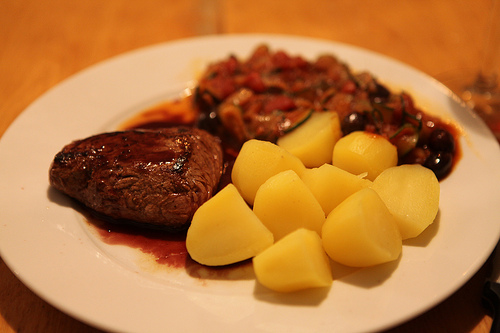
Things to Consider When Cooking for an Older Adult
How to Make Mealtime Enjoyable for Seniors
Elderly Nutrition and Diet Considerations
Because of an older adult's lowered calorie requirements, but continued need for good nutrition, there are some considerations you should make when meal planning, shopping and preparing meals for the senior set:
- Fruits and vegetables: At least 2 servings of fruit and 2 to 2 1/2 cups of vegetables per day should be the goal of a nutritionally balanced senior diet. Think fresh and colorful when meal planning. Yes, fresh fruits and vegetables may need to be prepared or cooked differently for the elderly so they can be eaten and digested, but starting with fresh means more nutrients and varying colors and kinds of fruits and vegetables adds interest to the meal and provides important antioxidants. Avoid overuse of juices; their calorie content is higher than whole fruit or vegetables and the fiber content is reduced.
- Calcium and Vitamin D: Bone health becomes increasingly important with age. Vitamin D aids the body to absorb calcium, so they are often thought of together in the fight against osteoporosis and bone fractures. Milk and dairy products enriched with vitamin D are good sources of these nutrients. Other calcium-rich foods include kale, almonds, tofu and broccoli. Additional food sources of vitamin D include fatty fish (salmon, tuna and more) and egg yolk.
- Vitamin B-12: Due to less production of stomach acid after age 50, absorption of this vitamin important to blood and nerves becomes reduced. Fortified foods -- breads, cereals, etc. and whole grains provide this important nutrient.
- Protein: HelpGuide.org explains that seniors need about 0.5 grams of protein for each pound of body weight daily. Sources of protein include meat, dairy, beans, peas, fish, nuts and seeds.
- Fiber: Fiber in the diet has several important roles, from aiding in maintenance of regular bowel movements to helping to reduce the absorption of cholesterol to keeping a person feeling full longer. Whole fruits and vegetables, beans and whole grain foods are great sources of fiber.
- Hydration: Offer water throughout the day and at meal times.

Additional Considerations When Cooking for Older Adults
There will be many things you'll learn about the older adult for whom you are cooking. His individual likes and dislikes, eating style and times and much more will guide you to making the best decisions in cooking for that person.
There are some things you might want to consider that may not be immediately noticed or shared by the senior:
- Three large meals a day is overwhelming. If the senior you're cooking for is overwhelmed even by small portions at three meals a day, break the daily menu into more frequent, smaller meals.
- Poor appetite can become an issue. If so, find out from the senior's health care provider or family members if it is acceptable to provide a glass of wine or other toddy to stimulate appetite.
- Many times, the elderly eat their largest meal of the day at lunchtime rather than at dinner. If this appeals to the senior for whom you are cooking, plan accordingly.
- Lifetime habits of eating are both a guideline for meal planning and preparation and can become obstacles to proper nutrition. Don't try to change everything at once if good nutrition is an issue. Small steps will be much better tolerated.
- Don't obsess over food intake. No one wants to be watched like a hawk or frequently reminded of her need to eat more, better, etc. Be mindful of what types of food are enjoyed and try to work that into meal planning more often.
- If dentures are ill-fitting, suggest denture liners or an appointment with a dentist to improve the situation. It can make a world of difference in eating enjoyment for the individual.

